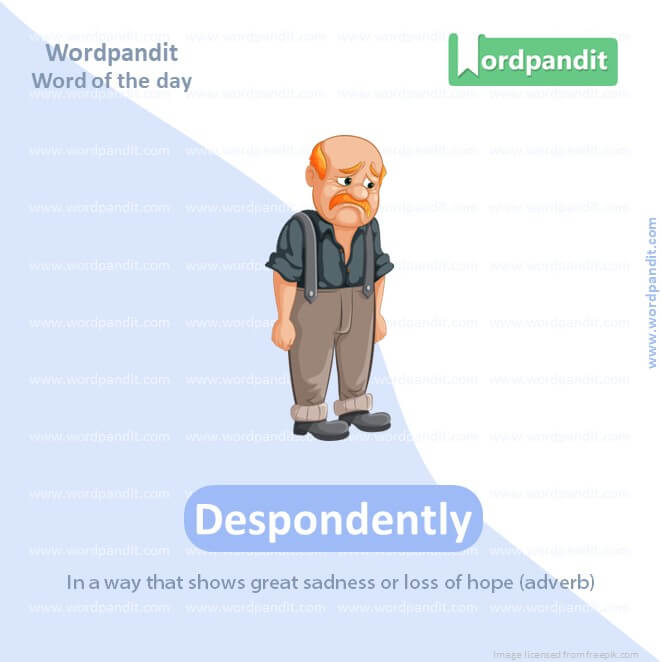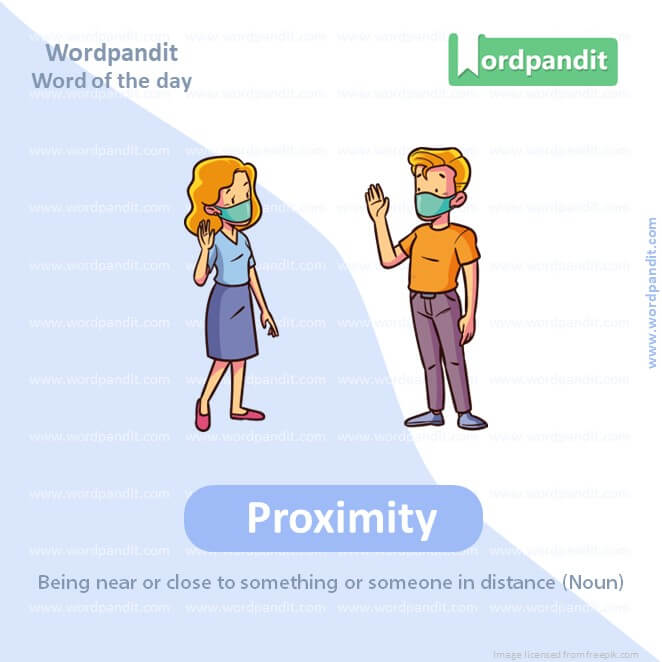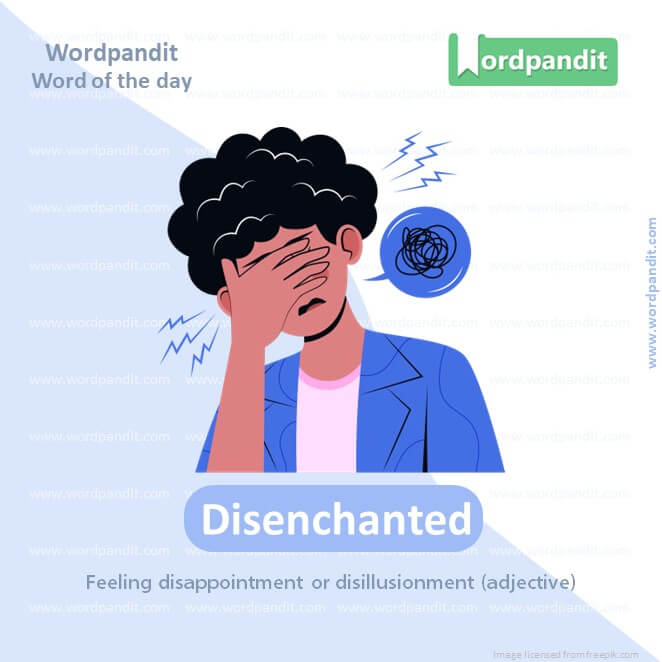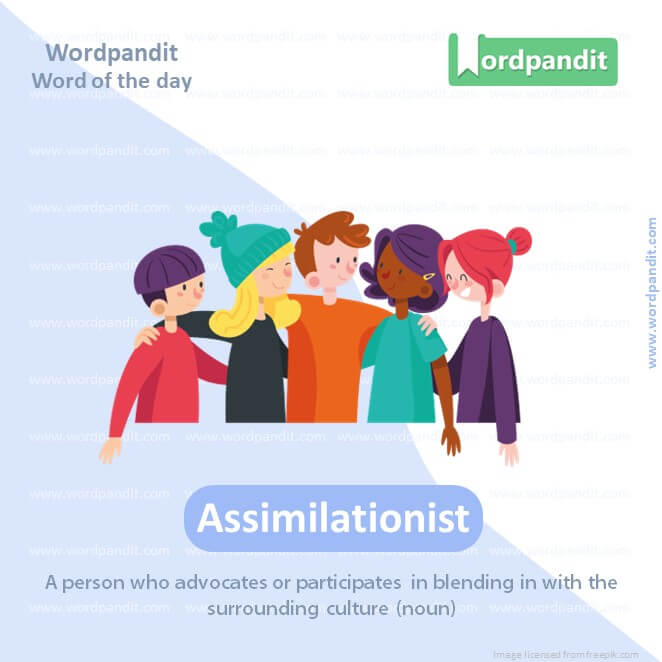Daily Vocabulary from Leading Newspapers and Publications: July 1, 2024
Daily Vocabulary Words: Enhance Your Lexicon with Leading Newspapers & Publications
Welcome to the Daily Vocabulary section at Wordpandit!
Our mission is straightforward: to bring you essential vocabulary words featured in top newspapers and publications worldwide. By focusing on words you’ll encounter in renowned sources, we aim to help you enhance your vocabulary effectively and practically.
Our selection includes words from:
– The New York Times
– The Washington Post
– Scientific American
– BBC
– The Guardian
– Psychology Today
– Wall Street Journal
– The Economist
– The Hindu
– The Times of India
– The Economic Times
– Hindustan Times
– Live Mint
– The Indian Express
– And many more.
We are committed to your vocabulary development. Simply visit this section regularly and explore the daily posts. This is your go-to repository for commonly used words, providing significant practical benefits by familiarizing you with vocabulary from the leading publications listed above.
Make it a habit to visit our website daily and expand your lexicon with words from top newspapers and publications. (edited)
WORD 1: Intensification
CONTEXT: This decision reflects the intensification of Indo-French cooperation over the past few years on issues such as climate change, biodiversity, health, and environment.
SOURCE: The Hindu
EXPLANATORY PARAGRAPH: Imagine when you color with markers and you keep going over the same spot to make the color darker and stronger. That’s similar to “intensification.” It means making something stronger or more intense, like making a color brighter by adding more marker.
MEANING: The action of making something stronger or more extreme (noun).
PRONUNCIATION: in-ten-si-fi-KAY-shun
SYNONYMS: amplification, strengthening, enhancement, magnification, deepening
USAGE EXAMPLES:
- The intensification of the storm made everyone nervous.
- There was an intensification in their effort to finish the project on time.
- The music’s intensification added excitement to the scene.
- She noticed an intensification of the flavors after adding more spices.

WORD 2: Despondently
CONTEXT: The Indian voter has indeed woken up and given a resounding blow to the indomitable regime that set out to create a toxic imbalance between various political parties in an environment despondently sunk in hatred and ethnic violence.
SOURCE: The Hindu
EXPLANATORY PARAGRAPH: Imagine feeling very sad because your favorite toy broke and you think it can’t be fixed. That sad feeling is what “despondently” describes. It’s feeling so sad that you don’t think anything will make it better.
MEANING: In a way that shows great sadness or loss of hope (adverb).
PRONUNCIATION: deh-SPON-dent-lee
SYNONYMS: gloomily, mournfully, sadly, hopelessly, disheartenedly
USAGE EXAMPLES:
- He walked away despondently after losing the game.
- She looked despondently at the broken vase.
- The team spoke despondently about their defeat.
- After hearing the bad news, he sat despondently in his room.
WORD 3: Tantalisingly
CONTEXT: Like many of us, India too tantalisingly swings between hope and scepticism in the face of the unfathomable results of its general election.
SOURCE: The Hindu
EXPLANATORY PARAGRAPH: Imagine seeing a cookie jar on a high shelf that you really want to reach, but it’s just a bit too far. That feeling of really wanting something you can almost get but not quite is “tantalisingly.” It’s like being teased with something very tempting.
MEANING: In a teasing or tempting way, especially by arousing hopes or desires that are just out of reach (adverb).
PRONUNCIATION: TAN-tuh-lie-zing-lee
SYNONYMS: temptingly, teasingly, alluringly, enticingly, provocatively
USAGE EXAMPLES:
- The cake was placed tantalisingly out of reach.
- She tantalisingly hinted at a surprise for her birthday.
- The holiday brochure described the islands tantalisingly.
- He smiled tantalisingly as he held the key to the secret room.

WORD 4: Proximity
CONTEXT: Hosur has emerged as a nucleus for auto and electric vehicle manufacturing and electronics. It is a favoured investment destination by virtue of its proximity to the Electronic City.
SOURCE: The Hindu
EXPLANATORY PARAGRAPH: If you sit really close to your friend so that you can whisper and share secrets, you’re sitting in “proximity” to them. It means being very close to something or someone.
MEANING: Being near or close to something or someone in distance (noun).
PRONUNCIATION: prok-SIM-i-tee
SYNONYMS: closeness, nearness, vicinity, adjacency, immediacy
USAGE EXAMPLES:
- The proximity of the park to their house made it easy to visit often.
- Because of their desks’ proximity, they became good friends.
- The hotel’s proximity to the beach was its best feature.
- The proximity of the two events caused some scheduling issues.

WORD 5: Bestowed
CONTEXT: Human rights that are bestowed by the nation-state on some, while excluding others through forced assimilation, ethnic cleansing or even genocide, principally explains the origins of many of today’s crises.
SOURCE: The Hindu
EXPLANATORY PARAGRAPH: Imagine getting a beautiful crown as a special gift because you did something wonderful. That special act of giving something because someone deserves it is called “bestowing.” It’s like a grand way of giving a gift.
MEANING: Given as a gift or honor (verb).
PRONUNCIATION: beh-STOWED
SYNONYMS: granted, conferred, awarded, imparted, presented
USAGE EXAMPLES:
- The medal was bestowed upon the hero for his bravery.
- The title of ‘Best Student’ is bestowed at the end of the year.
- They bestowed a scholarship on her for her excellent grades.
- Gratitude was bestowed by the community to the firefighters.
WORD 6: Cohabitation
CONTEXT: Cohabitation and reaching out to opposing political players is an abiding expectation.
SOURCE: The Hindu
EXPLANATORY PARAGRAPH: Imagine living in a big house where you share your toys, your room, and everything else with your best friend. That’s what “cohabitation” is like. It’s when people live together and share their daily lives, just like family or very close friends.
MEANING: The state of living together and sharing a home as a couple without being married (noun).
PRONUNCIATION: co-hab-i-TAY-shun
SYNONYMS: living together, coexistence, shared living, domestic partnership, joint habitation
USAGE EXAMPLES:
- They chose cohabitation before deciding to get married.
- The law has different rules for people in cohabitation.
- Cohabitation is becoming more common in many countries.
- They signed a cohabitation agreement to manage their shared expenses.
WORD 7: Stridently
CONTEXT: The awakened and alert electorate took on the challenge and sent an unambiguous message to the world that the voter in India stands tall in stridently conveying her indignation at the rise of creeping insidious authoritarianism and sullied politics.
SOURCE: The Hindu
EXPLANATORY PARAGRAPH: Think about when someone uses a really loud and harsh voice, like shouting at a soccer game to cheer but it sounds really intense. That’s “stridently.” It’s using a voice or sound that is loud and a bit harsh, so that everyone really notices.
MEANING: In a loud, harsh, and often grating way (adverb).
PRONUNCIATION: STRY-dent-lee
SYNONYMS: loudly, harshly, raucously, vociferously, shrilly
USAGE EXAMPLES:
- She spoke stridently during the debate to make her point heard.
- The alarm rang stridently, waking everyone up.
- He argued stridently against the proposed changes.
- The birds outside chirped stridently early in the morning.

WORD 8: Disenchanted
CONTEXT: I write with a sense of anguish at the return of McCarthyism, giving many a taste of the ordeal of the depression of a disenchanted and overbearing world.
SOURCE: The Hindu
EXPLANATORY PARAGRAPH: Imagine you really believe that a magic trick is real, but then you see how it’s done and feel a bit sad that it wasn’t magic at all. That feeling is called being “disenchanted.” It’s when you stop believing in something because it’s not as wonderful as you thought.
MEANING: Feeling disappointment or disillusionment (adjective).
PRONUNCIATION: dis-en-CHAN-ted
SYNONYMS: disillusioned, disappointed, dissatisfied, disheartened, cynical
USAGE EXAMPLES:
- After several failures, he became disenchanted with his project.
- Many voters have become disenchanted with the political process.
- She was disenchanted with the realities of Hollywood.
- The employees are disenchanted due to lack of recognition.
WORD 9: Complexion
CONTEXT: The very complexion of Indian politics must change to show to the emerging hard right wing that democratic forces are up and kicking when human dignity is in question.
SOURCE: The Hindu
EXPLANATORY PARAGRAPH: You know how people have different colors of skin, like some are very light and some are darker? That’s what “complexion” refers to. It’s the natural color and texture of someone’s skin on their face.
MEANING: The natural color, texture, and appearance of a person’s skin, especially of the face (noun).
PRONUNCIATION: kuhm-PLEK-shun
SYNONYMS: skin tone, coloration, hue, texture, appearance
USAGE EXAMPLES:
- Sunscreen helps protect your complexion from the sun.
- She has a clear, smooth complexion.
- Makeup can be used to enhance or even out your complexion.
- His complexion became ruddy after a day in the cold.

WORD 10: Assimilation
CONTEXT: Human rights that are bestowed by the nation-state on some, while excluding others through forced assimilation, ethnic cleansing or even genocide, principally explains the origins of many of today’s crises.
SOURCE: The Hindu
EXPLANATORY PARAGRAPH: Think about when you make a new friend at school and start learning their games so you can play together. That’s a bit like “assimilation.” It’s when you learn and start to be like the people around you, picking up new ways and ideas.
MEANING: A person who advocates or participates in blending in with the surrounding culture (noun).
PRONUNCIATION: uh-sim-i-LAY-shun
SYNONYMS: integration, absorption, incorporation, adaptation, amalgamation
USAGE EXAMPLES:
- Assimilation into a new culture can be challenging.
- The class focused on the assimilation of new concepts.
- Successful assimilation requires openness and flexibility.
- Language assimilation often happens when living in a new country.
Vocabulary Daily Use Words
In the architecturally diverse world of language learning, ‘vocabulary daily use words’ act as a cornerstone. We often take these words for granted, but their significance in day-to-day communications is nothing short of monumental. Mastering these ‘vocabulary daily use words’ should be more than an ancillary task on the sideline; it should take the center stage in your language learning journey.
To begin with, approach ‘vocabulary daily use words’ with the same gusto and reverence as you would an untapped treasure chest. Go beyond the conventional realm of textbooks and explore the world of contemporary literature, newspapers, and digital content. By immersing yourself in these mediums, you’re aligning your learning with real-world language usage, thereby gaining a practical understanding of ‘vocabulary daily use words.’
Memory-enhancing tools add an extra layer of effectiveness to your learning. Flashcards, for example, are a great way to make your study sessions interactive and memory-forging. Coupled with the Leitner system, which is a principle of spacing and repetition, you can ensure better recall and understanding of ‘vocabulary daily use words.’
Furthermore, leveraging mnemonic devices aids in etching the ‘vocabulary daily use words’ into your memory. Associating common words with unique and memorable narratives in your mind enhances their recall. Regular revision and using these words in routine conversations further cement your proficiency.
The potency of immersion as a language learning strategy cannot be emphasized enough. Conversing with native speakers, if possible, provides context to ‘vocabulary daily use words’ and boosts your fluency.
In conclusion, mastering the ‘vocabulary daily use words’ is an enriching journey that requires ongoing effort, continual exposure, and hands-on practice. The strategy of learning through various mediums, using memory-enhancing techniques, leveraging mnemonic devices, and immersion can help demystify these words and enhance your overall language proficiency. So, gear up and embrace the linguistic adventure of mastering the ‘vocabulary daily use words.’













